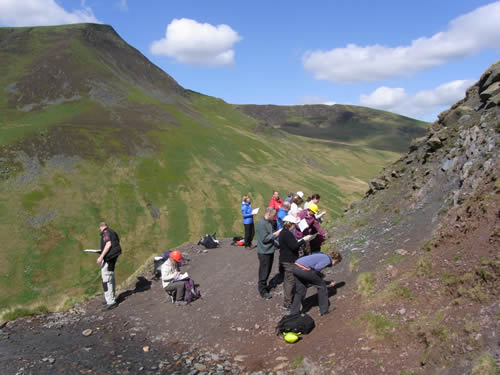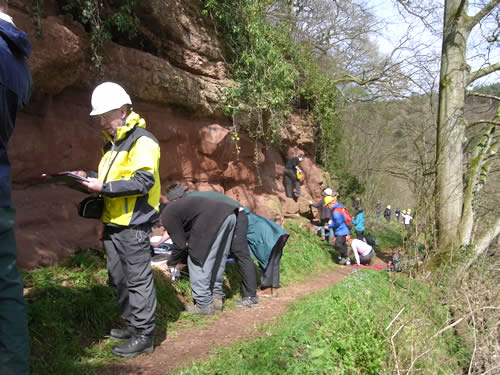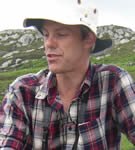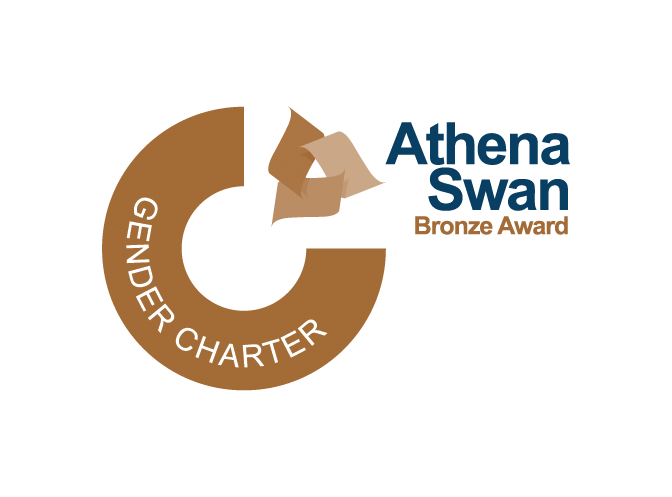Field Schools
Earth, Environment and Ecosystem Sciences are deeply rooted in field investigation – in teaching as well as research. In EEES we are committed to offering our students opportunities to benefit from the rich experience of learning in the outdoor environment.

One of the ways we do this is by organising field schools. These residential events take place over a few days at different field centres around the UK. They give students access to academic staff members, as well as the chance to interact with their peers. Every year we see students move from initial apprehension and uncertainty on arrival at the field school, through delight at the discoveries and progress they make, to a transformative sense of achievement and confidence as they complete the final activity.
We offer three main residential field schools. All are based at Field Study Council (FSC) centres, but whereas the first two schools are delivered mainly by FSC staff, the third is delivered primarily by academic staff from the Open University. All field schools involve a programme of fieldwork activities during the day and follow-up laboratory sessions in the evening.
Funding may be available to support your attendance at these field schools – please refer to the information on the relevant module websites.
1. Hydrology and meteorology in the field

A three-day school focusing on how to gather, analyse and interpret data on the weather and the flow of water through soils and in rivers. This field school can be booked at one of three Field Study Council centres: Malham Tarn in the Yorkshire Dales National Park; Preston Montford in the heart of the Shropshire countryside near Shrewsbury; and Nettlecombe Court at the eastern edge of Exmoor National Park in Somerset.
This is one of the two field schools that forms a compulsory practical element of the module SXF206 Environmental science; students taking the sister module S206 Environmental science may also be given the opportunity to book on this school.
2. Vegetation and soils in the field
A three-day school focusing on observing, describing and analysing plants and soils in the field – how to identify plant species, map plant communities, investigate soils and study the interactions between soils and vegetation. This field school can be booked at the same three Field Study Council centres as the Hydrology and Meteorology field school.
This is the second field school that forms a compulsory practical element of the module SXF206 Environmental science; students taking the sister module S206 Environmental science may also be given the opportunity to book on this school.
3. Geology in the field
A four-day school focusing on observing, measuring and interpreting rocks, minerals and fossils in the field. You will learn how to deduce past environments from sedimentary structures and fossil communities, how rocks are changed by pressure and heat during mountain-building events, and how to investigate volcanic textures that are almost half a billion years old. This field school is based at the Field Study Council Blencathra Field Centre in the heart of the northern Lake District.
This is an optional field school embedded in the module S209 Earth science.
News
Celebrating our new Professor of Ocean Biogeochemistry, Pallavi Anand
We are celebrating another new professor in EEES, following the promotion of Dr Pallavi Anand to Professor of Ocean Biogeochemistry.
Celebrating our new Professor of Planetary Mineralogy, Susanne Schwenzer
We are celebrating a new Professor in EEES. Dr Susanne Schwenzer has recently been promoted to Professor of Planetary Mineralogy.




